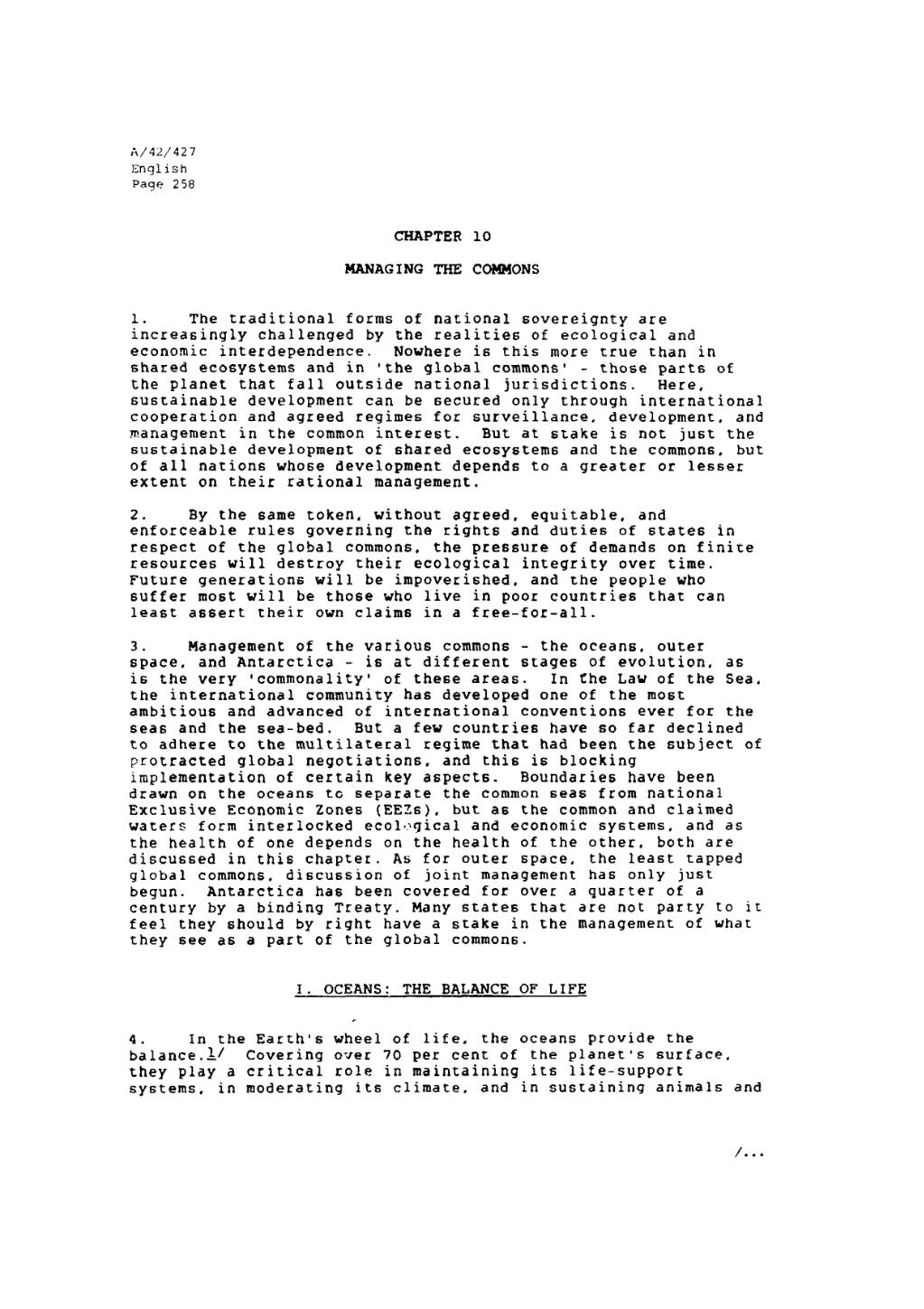A/42/427
English
Page 258
CHAPTER 10
MANAGING THE COMMONS
1. The traditional forms of national sovereignty are increasingly challenged by the realities of ecological and economic interdependence. Nowhere is this more true than in shared ecosystems and in 'the global commons' those parts of the planet that fall outside national jurisdictions. Here, sustainable development can be secured only through international cooperation and agreed regimes for surveillance. development, and management in the common interest. But at stake is not just the sustainable development of shared ecosystems and the commons, but of all nations whose development depends to a greater or lesser extent on their rational management.
2. By the same token, without agreed, equitable, and enforceable rules governing the rights and duties of states in respect of the global commons, the pressure of demands on finite resources will destroy their ecological integrity over time. Future generations will be impoverished, and the people who suffer most will be those who live in poor countries that can least assert their own claims in a free-for-all.
3. Management of the various commons – the oceans, outer space, and Antarctica – is at different stages of evolution, as is the very 'commonality' of these areas. In he Law of the Sea, the international community has developed one of the most ambitious and advanced of international conventions ever for the seas and the sea-bed. But a few countries have so far declined to adhere to the multilateral regime that had been the subject of protracted global negotiations, and this is blocking implementation of certain key aspects. Boundaries have been drawn on the oceans to separate the common seas from national Exclusive Economic Zones (EEZs), but as the common and claimed waters form interlocked ecological and economic systems, and as the health of one depends on the health of the other, both are discussed in this chapter. As for outer space, the least tapped global commons, discussion of joint management has only just begun. Antarctica has been covered for over a quarter of a century by a binding Treaty. Many states that are not party to it feel they should by right have a stake in the management of what they see as a part of the global commons.
I. OCEANS: THE BALANCE OF LIFE
4. In the Earth's wheel of life, the oceans provide the balance.[1] Covering over 70 per cent of the planer's surface, they play a critical role in maintaining its life-support systems, in moderating its climate, and in sustaining animals and
/…
- ↑ This section draw, on F. Szekely, 'The Marine and Coastal Environment', prepared for WCED, 19862 J. Beddington, 'Whaling', prepared for WCED, 1986; V. Sebek, 'Policy Paper on Dumping', prepared for WCED, 1986.
